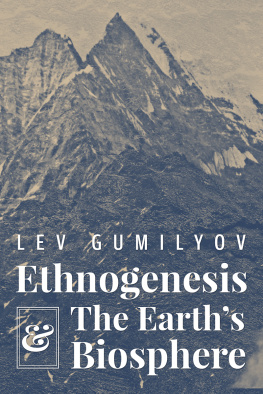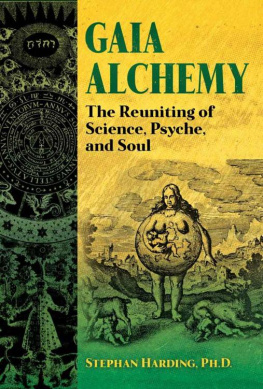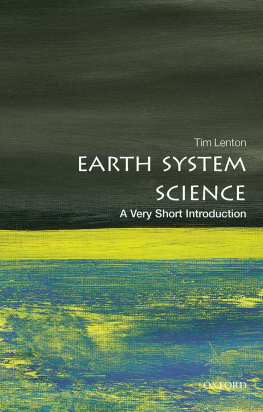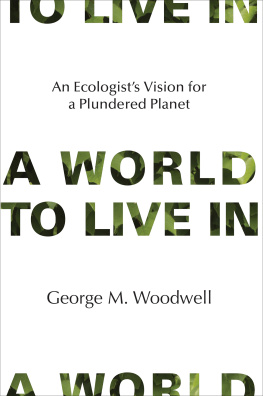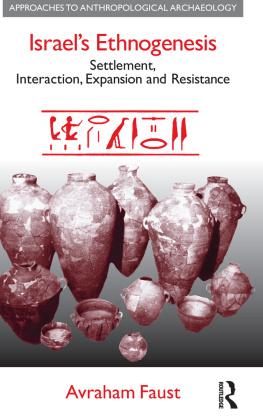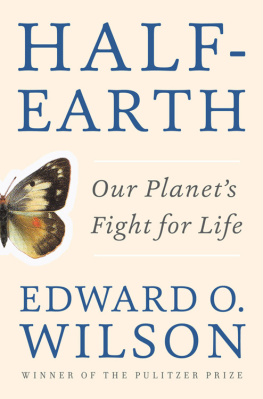Lev Gumilyov (Лев Гумилёв) - Ethnogenesis and the Earth’s Biosphere
Here you can read online Lev Gumilyov (Лев Гумилёв) - Ethnogenesis and the Earth’s Biosphere full text of the book (entire story) in english for free. Download pdf and epub, get meaning, cover and reviews about this ebook. year: 2020, genre: Science. Description of the work, (preface) as well as reviews are available. Best literature library LitArk.com created for fans of good reading and offers a wide selection of genres:
Romance novel
Science fiction
Adventure
Detective
Science
History
Home and family
Prose
Art
Politics
Computer
Non-fiction
Religion
Business
Children
Humor
Choose a favorite category and find really read worthwhile books. Enjoy immersion in the world of imagination, feel the emotions of the characters or learn something new for yourself, make an fascinating discovery.
- Book:Ethnogenesis and the Earth’s Biosphere
- Author:
- Genre:
- Year:2020
- Rating:4 / 5
- Favourites:Add to favourites
- Your mark:
- 80
- 1
- 2
- 3
- 4
- 5
Ethnogenesis and the Earth’s Biosphere: summary, description and annotation
We offer to read an annotation, description, summary or preface (depends on what the author of the book "Ethnogenesis and the Earth’s Biosphere" wrote himself). If you haven't found the necessary information about the book — write in the comments, we will try to find it.
Ethnogenesis and the Earth’s Biosphere — read online for free the complete book (whole text) full work
Below is the text of the book, divided by pages. System saving the place of the last page read, allows you to conveniently read the book "Ethnogenesis and the Earth’s Biosphere" online for free, without having to search again every time where you left off. Put a bookmark, and you can go to the page where you finished reading at any time.
Font size:
Interval:
Bookmark:
Ethnogenesis and the Earths Biosphere
Lev Gumilyov
Original Title
Etnogenez i Biosfera Zemli ( )
Second Russian Edition
Leningrad State University Publishing House, Leningrad, 1989
First English Edition
Progress Publishers, Moscow, 1990
This Digital Edition
November 2020
This is an unauthorised edition, made without permission or consent of the copyright owners and holders of the original work, and therefore it CANNOT be commercialised. This edition is solely intended for academic and educational purposes.
Contents
in which the need for ethnology is substantiated and the author sets out his views on ethnogenesis, without his line of reasoning, to which the rest of the treatise will be devoted, and in which the author will lead the reader through a labyrinth of contradictions.
The Grounds for Scientific Quest
Time and history. History is the study of processes taking place in time, but what that time is nobody knows. There is nothing surprising in that. Fish probably do not know what water is, because they have nothing to compare it with. And if they chance to be in air they do not have enough time to compare it with water.
V.I. Vernadsky deemed death as the separation of space and time, because inert matter, in his opinion, was timeless. He was seemingly right, but historians are concerned only with the processes of dying in which the now becomes the past. But is the past real? There is not unanimity of opinion on that among modern scholars.
There is a very common view that there is no past. Giovanni Gentile wrote:
In times past men were born and thought and labored... but all these are long since dead like the flowers on whose scent and beauty in their lives they feasted, or like the leaves which they saw growing green in spring or sere and fallen in the autumn. Their memory lives; but a world remembered, like the world of dreams, is nothing; and remembering no better than to dream.
The historian, in short, knows well enough that the life and meaning of past facts is not to be discovered in characters or inscriptions, or in any actual relics of the past; their source is in his own personality.
One cannot agree with that, but let us wait to dispute it, since others, too, have written on this theme. Dilthey and Gardiner were even more categorical. They, in fact, denied history, affirming that its conclusions were unreliable since historians were inevitably subjective, and therefore could not be dispassionate. The primeval cell of the historical world is the happening in which the subject finds himself in an active relation of life with his surroundings. Gardiner has said:
There are no absolute Real Causes waiting to be discovered by historians with sufficiently powerful magnifying-glasses. What do exist are historians writing upon different levels and at different distances, historians writing with different aims and different interests, historians writing in different contexts and from different points of view.
Modern historians, it would seem, have provided these thinkers with the material for such pessimistic conclusions, the same historians aptly described by Anatole France:
Do we write history? Do you imagine that we attempt to extract the least parcel of life or truth from a text or a document? We publish texts purely and simply. We keep to their exact letter... Ideas are crotchets.
I do not wish to defend that position but surely the dispute is in fact about it. So let us introduce the needed clarity.
The dispute, if one began it, would be based on a philological misunderstanding. A whole series of tasks, quite different from one another though interconnected, are called history now. (1) The publication and translation of ancient sources is a necessary task, but only yields raw material. (2) Historical criticism, sifting out the deliberate and sometimes unconscious lies of authors of antiquity, is the production of semi-finished goods. (3) Comparison of the material won about what was previously accumulated is already the product, but not yet a consumable one. Then there is (4) the interpretation of facts on the plane of the problem posed and (5) the posing of new problems arising at the juncture of sciences. The philosophers mentioned above, and many like them, were sorry essentially about the fact that they could not use the obtained raw material without further processing, which is actually impossible, but there is no other way and will not be. The philosophers are right about something elsenot everyone can find this road.
The simplest generalizations, it seems, call for such mental lan and heat of emotions that thought melts and takes on a new form, astonishing the candid reader at first but then convincing him. The point is not what course of thought or choice of arguments a thesis is proved by; that is a craft, which it is necessary to know, of course, but is not enough to know. The point is why a new thesis is sometimes discovered and demonstrated. That is a mystery of the psychology of creation that the Greeks ascribed to the muse of history Clio, who reminded us that the skepticism of the philosophers was unjustified and that the past was not personal experience and not a dream. Because the present is only a moment, instantaneously becoming the past. There is no future, because no acts that determine consequences of some sort are completed, and it is not known whether they will be in the future. The future can only be gauged statistically, with a tolerance that deprives the calculation of practical value. But the past exists; and everything that exists is past, since anything completed then and there becomes the past. That is why history studies the only reality, which exists outside us and in spite of us.
Talk about the unreliability of subjective perception is idle chatter. Reliability is always necessary within definite limits, beyond which it becomes meaningless. It is impossible and unnecessary to calculate the distance from Moscow to Leningrad to an accuracy of a millimeter. It is the same in history, but it has its own specifics of the posing of the problem.
It is reasonable to study processes (social, ethnic, and cultural) rather than nuances of the sensations of historical personages. The degree of accuracy in collecting primary information is small, but when long-lasting processes are traced chance errors cancel one another out, so that we can get a description meeting the needs of our practical task, viz. to understand an epoch. And the wider the coverage the greater the accuracy.
With that posing of the matter there is no sense in increasing the number of petty details above the necessary, because they create cybernetic noise. And the principle of the selection of facts is prompted by the task posed.
Since I start from the point that an ethnos is a natural phenomenon in its forming, the basis for studying it can only be the philosophy of science, i.e. dialectical materialism. Historical materialism sets itself the goal of disclosing the laws of social development, i.e. relates (as Marx put it) to the history of people and not to the history of nature which lies in mens bodies. And although both these histories are closely interwoven and interconnected, scientific analysis calls for refining the angle of vision, i.e. the aspect. The historical material we draw on is our information archive and no more. It is necessary and sufficient for the purposes of analyzing it. Marx expressed himself clearly about this:
History itself is a real part of natural history and of natures becoming man. Natural science will in time subsume the science of man just as the science of man will subsume natural science: there will be one science.
We are now on the threshold of the creation of this science.
Next pageFont size:
Interval:
Bookmark:
Similar books «Ethnogenesis and the Earth’s Biosphere»
Look at similar books to Ethnogenesis and the Earth’s Biosphere. We have selected literature similar in name and meaning in the hope of providing readers with more options to find new, interesting, not yet read works.
Discussion, reviews of the book Ethnogenesis and the Earth’s Biosphere and just readers' own opinions. Leave your comments, write what you think about the work, its meaning or the main characters. Specify what exactly you liked and what you didn't like, and why you think so.

